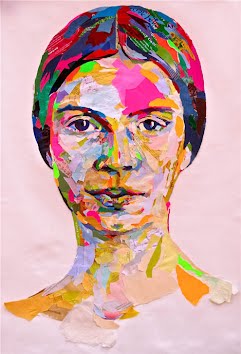The online clamor
"At the time, like many of her friends, she was frozen, unsure of how to proceed. In Oakland, where she lives, it felt like everyone she knew was asking themselves, 'What is the point of what I am doing? Am I adding anything to the world?' At the same time, it felt difficult to distance oneself from the online clamor long enough to formulate an answer."
-- from the NYT Book Review of Jenny Odell's “How to Do Nothing: Resisting the Attention Economy." I really, really liked the essay she wrote which apparently led to the book. If I can pry myself away from the Internet for long enough maybe I'll actually read the book too.
"I can walk away."

“I’m too old—not too old, but I’m tired—to put a lot of energy into something I don’t really want to do. And I am genuine when I say I can walk away.”
-Hannah Gadsby, the (perhaps now former) stand-up comic on deciding to leave comedy for good after her very successful show Nanette. Via her interview with Vanity Fair
A certain way to be

"Unlike LeBron James, who'd grown up in the spotlight and had years to get used to an unsettling level of fame and attention, or Steph Curry, who'd grown up wealthy, in a family that passed along a measure of security and knowledge about life off the court, Durant was learning as he went.
'I wasn't no phenom growing up,' he told me. 'It was just my mom, my brother, my godfather, and my grandma. My games wasn't packed out in high school. I didn't even play at night. So this shit is all new. As it's happening, I'm experiencing it for the first time.
I wasn't taught a certain way to be growing up. I got taught right from wrong, and how to be fair. Anything else, I had to figure out.'"
--From GQ's recent profile of Kevin Durant. I've been watching more basketball recently, and Durant is definitely a favorite. The Warriors are very lucky to have him.
"She writes finely, but no one ever sees her"

"I must tell you about the character of Amherst. It is a lady whom people call 'the myth.' She is a sister of Mr. Dickinson, and seems to be the climax of all the family oddity. She has not been outside of her own house in fifteen years, except once to see a new church, when she crept out at night and viewed it by moonlight. No one who calls upon her, no one who ever calls upon her mother and sister, ever sees her, but she allows little children once in a great while, and one at time, to come in, when she gives them cake and candy or some nicety, for she is very fond of little ones. But more often, she lets down the sweetmeat by string out of a window to them.
She dresses wholly in white, and her mind is said to be perfectly wonderful. She writes finely, but no one ever sees her. Her sister, who was at Mrs. Dickinson's party, invited me to come and sing to her mother sometime and I promised to go & if the performance pleases her, a servant will enter with wine for me, or a flower, & perhaps her thanks; but just probably the token of approval will not come then, but a few days after, some dainty present will appear for me at twilight. People tell me 'the myth' will hear every note -- she will be near, but unseen.
...Isn't that like a book? So interesting. No one knows the cause of her isolation, but of course there are dozens of reasons assigned."
I liked the recent article about artistic recluses in T Magazine, which referenced this letter that Mabel Loomis Todd wrote to her parents in 1881 upon moving to Amherst and learning of her new neighbor, Emily Dickinson.